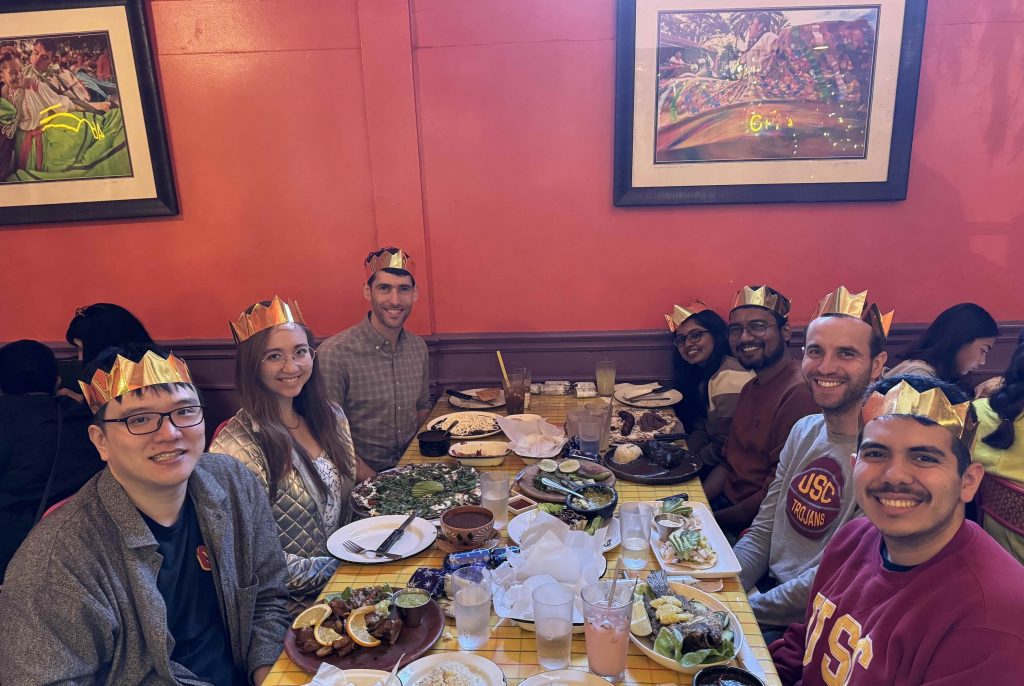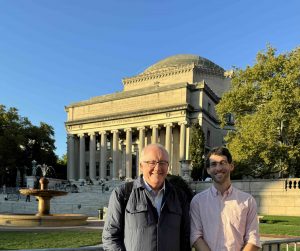In a new paper led by MeiLu, published today in npj Systems Biology and Applications, we sought to define the extent to which paths through EMT intermediate states are shared and — by fitting a mathematical model of the cell state transition dynamics — were able to identify genes that mark for the *dynamic* regulation of EMT across cancer types and stimuli.
Adam attended the Systems Approaches to Cancer Biology 2025 conference at CU Anschutz, CO, where he presented recent work from collaboration with the Roussos Torres lab at USC Keck on awakening immune responses in metastatic tumor microenvironments. The science was excellent, as was the snow.

Our paper led by Xiaojun on Data-driven model discovery and model selection for noisy biological systems has been published PLOS Comp Biol. Mathematical models wielded skillfully can offer great insight into biological systems. The process of constructing models, however, is typically manual and labor-intensive. Data-driven model discovery provides an exciting alternative but dealing appropriately with the typical level of biological noise we observe in data is a challenge. Here we presents model discovery and model selection methods to infer models and evaluate the current limits of model discovery from noisy data.
Working together with the Joint Educational Project (JEP) at USC, we have developed a curriculum to enhance elementary school STEM education consisting of four lesson plans developed from the methods and results of MacLean Lab research, which are aligned with the Next Generation Science Standards for 4th grade. The curriculum and its implementation and assessment in K-12 schools partnered with USC has been published in
Connected Science Learning.
We ended the year with Oaxacan—American—British (the Christmas cracker hats) themed holiday lunch at Guelaguetza, with a special guest. Happy holidays from the MacLean lab!

In new work led by Anupam we reveal that choice of network logic in ODE modeling of gene regulatory networks plays an underappreciated and oversized role in determining cell fate outcomes. In application to tristable EMT landscapes, we show that it is critical to consider the choice of logic when constructing models.
By mapping out transition paths dictated by logic we provide methods with which to infer the logic used by gene circuits in live cells undergoing EMT through simple perturbation experiments. Read the paper on bioRxiv.
Our paper on the origins of stem cell variation is out now in Nature Communications. Using fluctuating methylation clocks as barcodes to measure blood stem cell clonal composition in twins… we show that the variation in the hematopoietic stem cell pool that (in most of us) leads to clonal hematopoiesis in later life is likely present before birth. Led by postdoc Jesse in collaboration with Jazlyn Mooney (QCB) and Darryl Shibata (USC Keck).
Adam visited Brown University to give a seminar at the Center for Computational Molecular Biology He spoke about recent work from the lab on the inference of gene regulatory network dynamics in single cells. The talk was recorded and is available here.
MeiLu has submitted a paper (available on bioRxiv) describing her work revealing intermediate EMT state dynamics through integrated data analysis and modeling of the cell state transitions that occur during EMT. Through this analysis, we discovered new marker genes associated with the dynamics of EMT. Congratulations MeiLu!
Adam visited Columbia University to give a seminar at the Irving Institute for Cancer Dynamics, where he spoke about inferring cell fate networks that control outcomes in complex cancer microenvironments.


